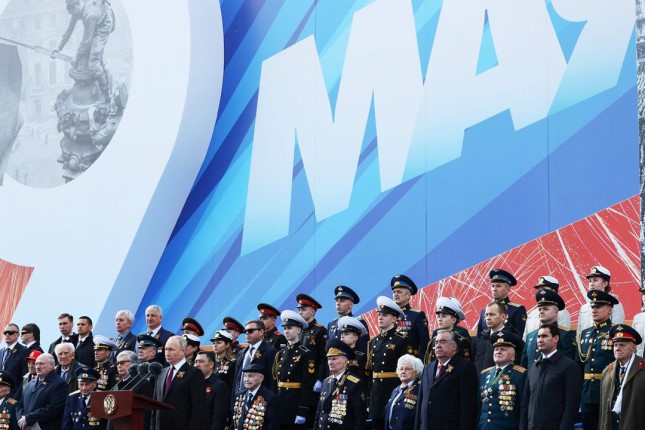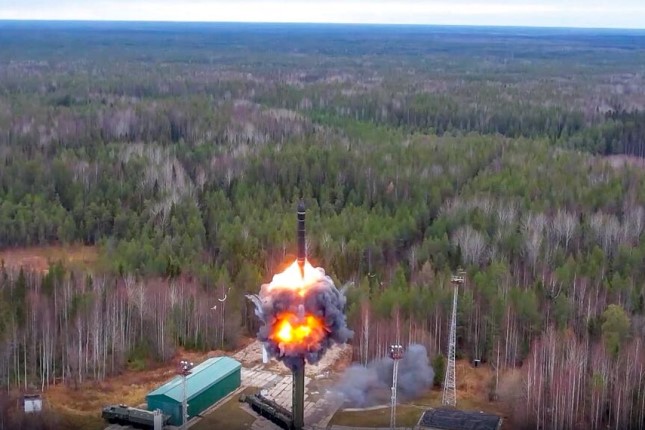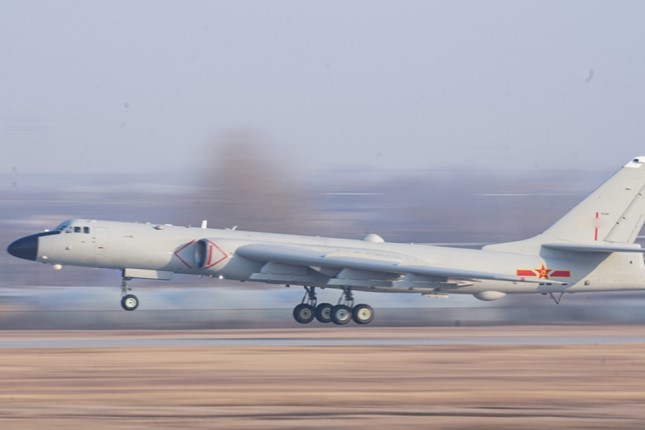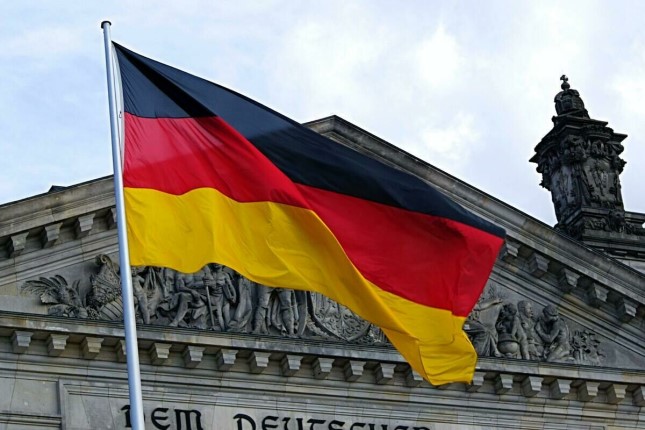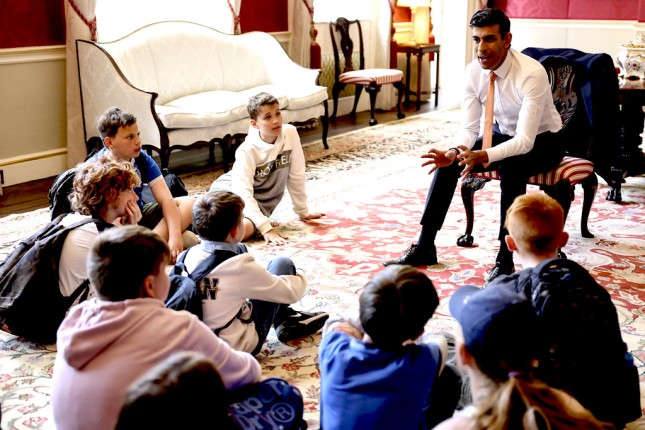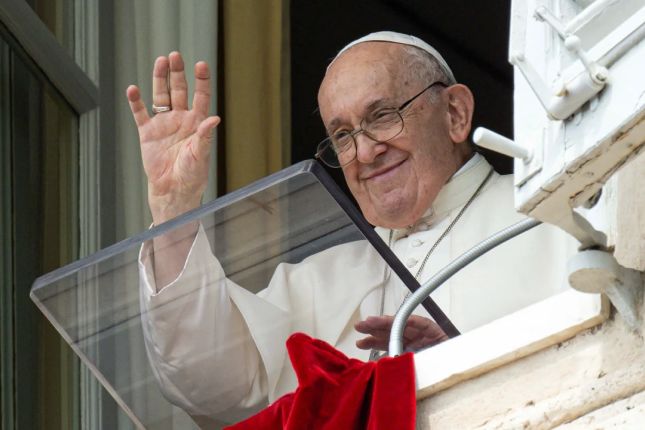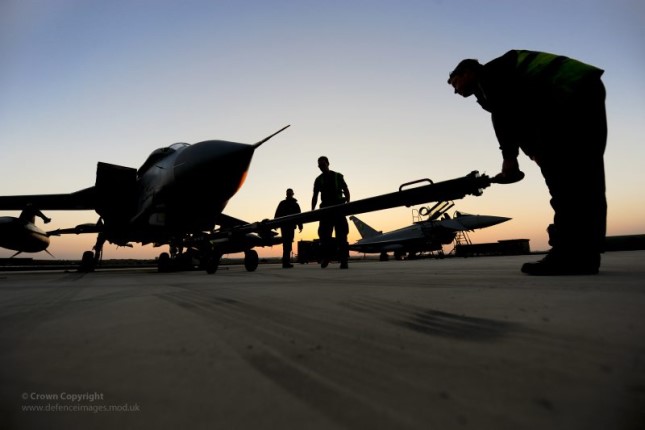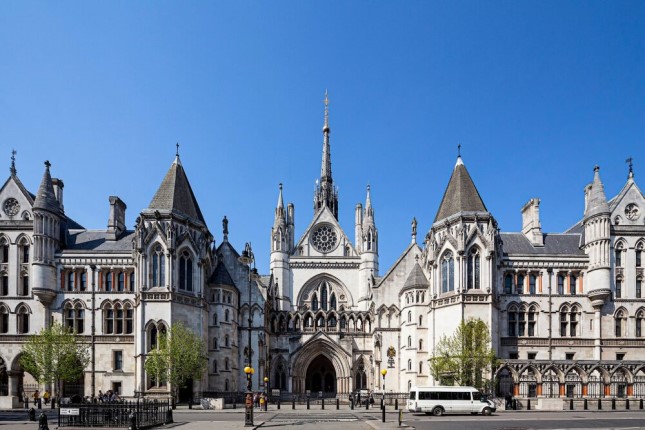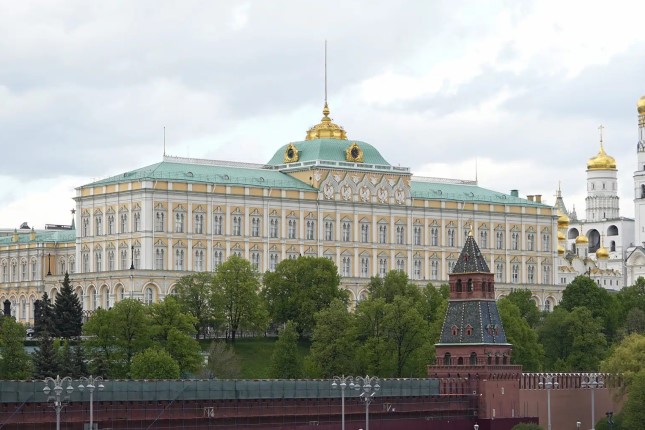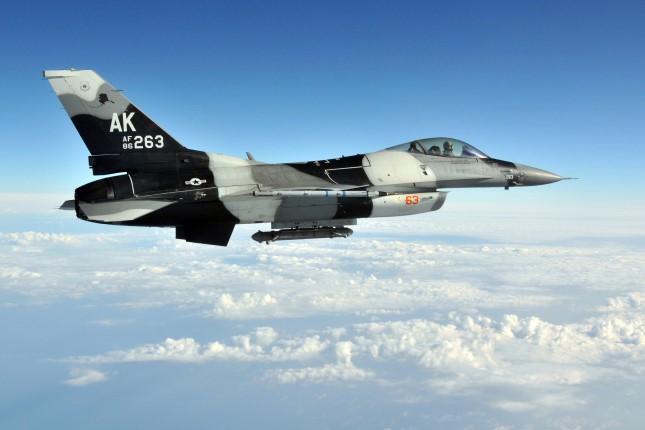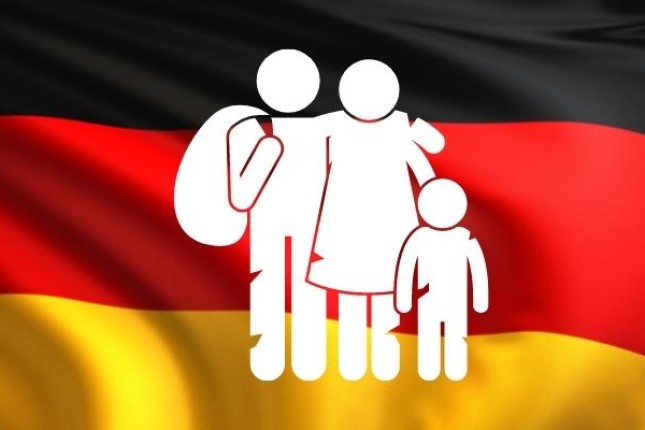Russia celebrated the 78th anniversary of the Soviet Union's victory over Nazi Germany in World War II with an annual military parade at the Red Square on Tuesday, while European Commission President Ursula von der Leyen arrived in Ukraine's capital Kiev on the same day to mark Europe Day as the bloc is mulling 11th round of sanctions against Russia for the conflict with Ukraine.
The confrontation between Russia and Ukraine and the West behind has expanded beyond the scope of the battlefield, and how the Ukraine crisis will end may be determined by the result on the battlefields, which is not what many countries that have worked to promote peace want to see, analysts said.
This year's military parade at the Red Square in Russia has drawn global attention amid tight security following a drone attack at the Kremlin last week. The Tuesday parade began with the march of the Honor Guard's banner group carrying the Russian national flag and the legendary Victory Banner across Red Square. The Victory Banner was hoisted over the Reichstag by soldiers of the Soviet 150th Idritsa rifle division in May 1945, according to media reports.
On Tuesday, Russian President Vladimir Putin gave a 10-minute speech at the Red Square, during which he said that Russia wanted a peaceful future but that "Western elites" were "sowing hatred and Russophobia" and that Ukrainians had become "hostages to a state coup" and ambitions of the West.
"Real war is being waged against our Motherland," Putin said, noting the West had forgotten the Soviet victory over Nazi Germany and that Russia was currently fighting for its survival.
The annual military parade has a symbolic meaning for Russia to inherit the legacy of the Soviet Union and it concerns its status as a great power. What Putin wanted to convey in the Tuesday speech is what he has already reiterated many times since the conflict with Ukraine began - the historical link between Russia and Ukraine and the reasons for the use of force against Ukraine, especially the strategic squeeze from the US and the West, Wang Chenxing, a research fellow on Russian studies from the Chinese Academy of Social Sciences, told the Global Times.
The military parade is to unite the military and the Russian people and also to show Russia's determination and confidence that it will not surrender to any intimidation either from the US or NATO, Song Zhongping, a Chinese military expert and TV commentator, told the Global Times on Tuesday.
Russia is expressing its tough stance via the parade. The weapons displayed include new developed ones and new weapons that have been used in the battle with Ukraine, including Z-STS "Akhmat" armored tactical vehicles and armored vehicle "VPK-Ural," said Song.
This year's parade involved over 8,000 troops, including 530 fighters of the special military operation in Ukraine. Various vehicles and missile systems, including Iskander-M tactical missile systems, S-400 Triumf anti-aircraft missile systems and Yars intercontinental ballistic missile (ICBM) launchers were displayed at the parade, according to Russian news agency TASS.
Some of the Commonwealth of Independent States (CIS), including the Presidents of Belarus, Kazakhstan, Kyrgyzstan, Tajikistan, Uzbekistan, Turkmenistan, and the prime minister of Armenia were in attendance and together with Putin, they laid wreaths at the Tomb of the Unknown Soldier in Alexander Garden near the Kremlin, according to TASS.
Sticky situation
While some CIS countries were celebrating the Victory Day to commemorate the sacrifice made by the Soviet Union in World War II on Tuesday, Ukrainian President Volodymyr Zelensky proposed to make the Victory Day on May 9 in Ukraine as "the day of Europe" - a day to celebrate peace and unity in Europe.
EU chief Ursula von der Leyen welcomed Zelensky's proposal and told reporters on her train to Kiev on Tuesday that "Ukraine is part of our European family."
For the past 10 years, Ukraine has tilted toward the West and the US on politics and military and Zelensky's proposal to turn the Victory Day into "the Europe Day" is to further cut ties with Russia on history, value and civilization, said Wang.
The military expert Song Zhongping noted that by announcing the Europe Day, Zelensky aims to tie the fate of Ukraine tightly with Europe's. Ukraine hopes that the US and NATO can fully support Ukraine, and even directly intervene in its fight against Russia. However, Zelensky can do little with the US -- the instigator of the Russia-Ukraine conflict, he is now working on Europe.
But the US, NATO and the EU each have their own calculations, making it harder for them to fully support Ukraine as they clamored, analysts said, noting that the EU's plan to impose the 11th round of sanctions against Russia will not be as effective as it expects since the previous 10 rounds have had limited impact on Russia's economy, which is expected to have positive growth this year.
The military conflicts in Ukraine is continuing with situation in the battlefields stuck in stalemate. One day ahead of Moscow's planned Victory Day celebrations, Russia launched a new wave of attacks on Ukrainian cities Kiev, Odesa and Kherson, while Ukraine is "preparing" a major counteroffensive, according to some Western media reports.
Western countries hope Ukraine can have a decisive victory in the spring counteroffensive, but people with rationality including some from Ukraine know they should not have higher expectations as Russia is in a relatively favorable position with advantages in weapons and military capability, said Song.
"Currently, there is no sign of peace in the military conflict between Russia and Ukraine," said Song.
There is a trend in the West that attempts to besiege and suppress Russia by denying the Soviet Union's sacrifice in history. The current conflict over the Victory Day and the Europe Day between Russia and the West is a fight for the discourse power and moral high ground. It is also an epitome for the huge divergences of related parties on the Ukraine crisis, Yang Jin, an associate research fellow at the Institute of Russian, told the Global Times.
The current situation shows it is extremely difficult to reach consensus on the Ukraine crisis, Yang said. The end of the crisis will only be determined by the result on the battlefields, although it isn't what many countries that have worked to promote peace want to see.
As the Russia-Ukraine conflict has lasted for some 15 months, more countries, including China, have called for related parties to stop fanning flames, take actions to ceasefire and to offer path to peace. In February, China also released a 12-point position document on the political settlement of the Ukraine crisis.
A truce on the conflict cannot be reached without the efforts of all related parties, analysts said, urging the US to stop pouring weapons into the battlefields, which is exacerbating the situation.
Main photo: Russian President Vladimir Putin gives a speech during the Victory Day military parade at Red Square in central Moscow on May 9, 2023. Russia is celebrating the 78th anniversary of victory over Nazi Germany during World War II © VCG.
Source: The Global Times.
